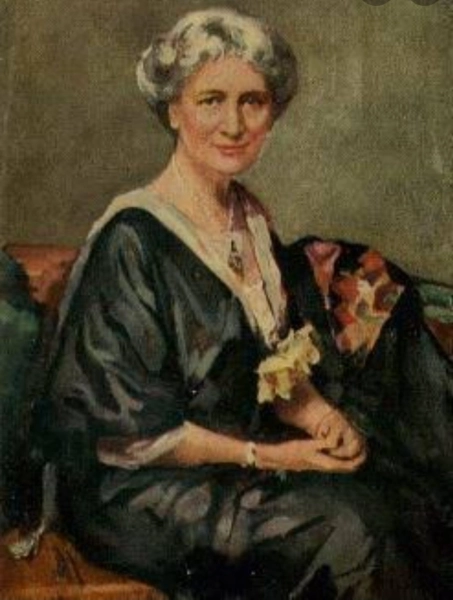News And PoliticsCommunications And EntertainmentSports And FitnessHealth And LifestyleOthersGeneralWorldnewsBusiness And MoneyNigerianewsRelationship And MarriageStories And PoemsArts And EducationScience And TechnologyCelebrityEntertainmentMotivationalsReligion And PrinciplesNewsFood And KitchenHealthPersonal Care And BeautySportsBusinessFamily And HolidaysStoriesIT And Computer ScienceRelationshipsLawLifestyleComedyReligionLifetipsEducationMotivationAgriculturePoliticsAnnouncementUSMLE And MedicalsMoneyEngineeringPoemsSocial SciencesHistoryFoodGive AidBeautyMarriageQuestions And AnswersHobbies And HandiworksVehicles And MobilityTechnologyFamilyPrinciplesNatureQuotesFashionAdvertisementChildrenKitchenGive HelpArtsWomenSpiritualityQuestions AnsweredAnimalsHerbal MedicineSciencePersonal CareFitnessTravelSecurityOpinionMedicineHome RemedyMenReviewsHobbiesGiveawayHolidaysUsmleVehiclesHandiworksHalloweenQ&A
History
profile/6846FB_IMG_16572967820456498.jpg
Lucas

Most Things You Won't Learn In School
~0.6 mins read
Kevin Carter (September 13, 1960 – July 27, 1994) was a South African photojournalist and member of the Bang-Bang Club. He was the 1994 recipient of a Pulitzer Prize for his photography depicting the 1993 famine in Sudan. He took his own life at age 33.
He could no longer bear the images, the events. Some of his professional colleagues said that photojournalism killed Kevin Carter.He won the Pulitzer Prize for his work.
And then, in 1994, he took his own life. He could no longer bear the images, the events and the ridicule he received.
“Why didn't you do something?” people said.
He was doing something. He was making YOU aware of things YOU don't want to know.
Maybe you didn't know the photo above, but I'm sure the photo below, Kevin Carter's most famous work, you've seen it before.
profile/5124FB_IMG_16535015844094087.jpg.webp
Youngtigerish

A Letter From The Devil
~1.2 mins read
Over 300 years ago, at the convent of Palma di Montechiaro in Sicily , a nun named Sister Maria Crocifissa della Concezione claims to have been possessed by the devil.
According to the story, Sister Maria woke up one morning in 1676 covered in ink, having spent the night writing letters.
Maria, who had been at the convent since she was 15, is believed to have been screaming and fainting while writing the notes, which she said the devil dictated to her.
She claimed the possession was part of Lucifer's plan to turn her against God and convince her to serve evil.
The writing featured a bizarre mixture of letters from archaic alphabets and no one was able to decipher the messages.Today one of the mysterious texts is still intact and, thanks to researchers from the Ludum science centre in Italy, part of it has finally been decoded.
The breakthrough is thanks to a piece of software discovered on the dark web.
We heard about the software, which we believe is used by intelligence services for codebreaking," Daniele Abate, director of the centre, told The Times .
"We primed the software with ancient Greek, Arabic, the Runic alphabet and Latin to descramble some of the letter and show that it really is devlish."
The letter, is said to describe God, Jesus and the Holy Spirit as "deadweights" and states: "God thinks he can free mortals" but "this system works for no one."
It even goes as far as to claim that God was invented by man.
profile/15111701370864869.jpg.webp
Zamong

Unveiling The Remarkable Woman Who Named Nigeria; A Tale Of Courage And Legacy.
~2.3 mins read
Title: Unveiling the Remarkable Woman Who Named Nigeria: A Tale of Courage and Legacy
Introduction:
Nigeria, a nation rich in culture, diversity, and history, owes its very name to a remarkable woman whose story has often been overlooked. In this blog post, we delve into the captivating narrative of the woman who bestowed the name "Nigeria" upon this great West African nation. Her legacy, courage, and contribution to the birth of Nigeria are truly awe-inspiring.
Section 1: The Birth of a Nation
In the late 19th century, Nigeria was a collection of diverse territories under British colonial rule. However, it lacked a unifying identity. It was during this pivotal time that a woman emerged, forever changing the course of history.
Section 2: The Woman Behind the Name
Flora Shaw, a British journalist and writer, played a pivotal role in shaping Nigeria's destiny. Her deep understanding of the region, its people, and its potential led her to propose the name "Nigeria" in an article published in The Times in 1897.
Section 3: A Visionary Perspective
Shaw's choice of the name "Nigeria" was not arbitrary. It was a reflection of her visionary perspective, recognizing the Niger River as the lifeblood of the region and the unifying force that could bind the diverse territories together.
Section 4: A Journey of Exploration
Shaw's extensive travels throughout Nigeria allowed her to witness firsthand the beauty, complexity, and potential of the land. Her experiences fueled her passion for the region and her determination to give it an identity that would resonate with its people.
Section 5: The Power of Words
As a journalist and writer, Shaw understood the power of words. Through her eloquent and persuasive writing, she advocated for the recognition and unification of the territories, ultimately leading to the birth of Nigeria as a single entity.
Section 6: A Legacy of Unity
Shaw's contribution to Nigeria's birth extended beyond the name itself. Her vision of unity and her belief in the potential of the Nigerian people laid the foundation for a nation that would strive for progress, diversity, and inclusivity.
Section 7: Overcoming Challenges
Shaw faced numerous challenges during her journey, including societal norms and gender biases of the time. However, her determination and unwavering belief in the importance of her mission propelled her forward, leaving an indelible mark on Nigeria's history.
Section 8: Honoring Her Memory
Today, it is crucial to recognize and honor the woman who named Nigeria. Shaw's legacy serves as a reminder of the power of individuals to shape nations and the importance of acknowledging the contributions of women in history.
Section 9: A Nation Forever Grateful
Nigeria owes a debt of gratitude to Flora Shaw, the woman who named it. Her courage, vision, and determination continue to inspire generations, reminding us of the strength and resilience of the Nigerian people.
Meta Description: Unveiling the remarkable woman who named Nigeria - Flora Shaw. Discover the captivating story of her vision, courage, and legacy, and how her choice of the name "Nigeria" forever shaped the destiny of this great nation.
Advertisement
Loading...
 Lucas
Lucas
 Youngtigerish
Youngtigerish
 Zamong
Zamong